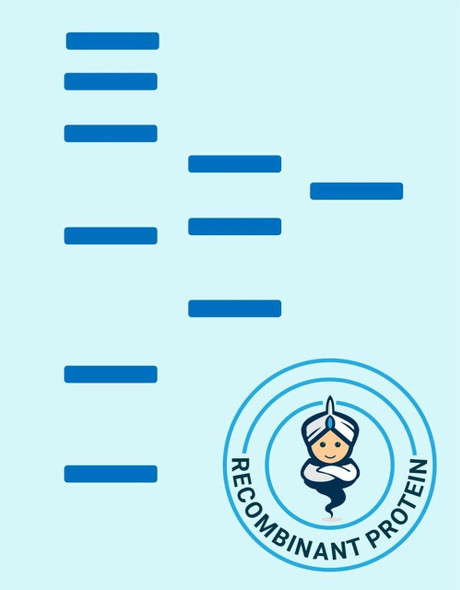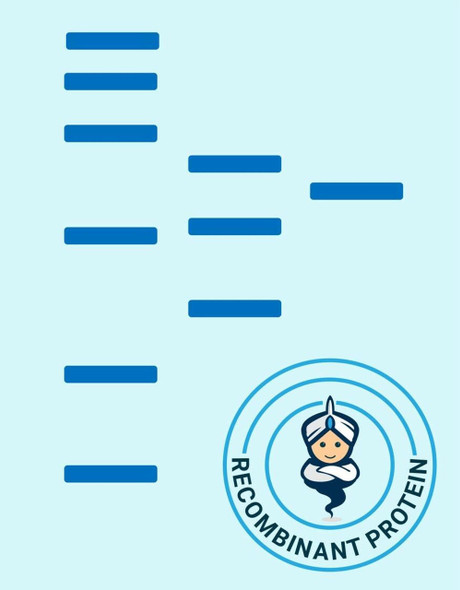| Sequence: | MKLCVSALSLLLLVAAFCAPGFSAPMGSDPPTSCCFSYTSRQLHRSFVMDYYETSSLCSKPAVVFLTKRGRQICANPSEPWVTEYMSDLELN |
| Accession: | P14097 |
| Storage: | Generally, lyophilized proteins are stable for up to 12 months when stored at -20 to -80°C. Reconstituted protein solution can be stored at 4-8°C for 2-7 days. Aliquots of reconstituted samples are stable at < -20°C for 3 months. |
| Shipping: | This product is provided as lyophilized powder which is shipped with ice packs. |
| Formulation: | Lyophilized from sterile PBS, pH 7.4 Normally 5 % - 8 % trehalose, mannitol and 0.01% Tween80 are added as protectants before lyophilization. Please refer to the specific buffer information in the printed manual. |
| Reconstitution: | Please refer to the printed manual for detailed information. |
| Background: | CCL4 (C-C chemokine ligand 4), is a macrophage inflammatory protein with a chief effect in inflammation and immune-regulation, and was documented in cancer progression by promoting instability in the tumor environment. The inflammatory chemokine (C-C motif) ligand 4 (CCL4) plays an important role in the pathogenesis and progression of cancer. In particular, higher serum CCL4 levels in patients with oral squamous cell carcinoma (OSCC) are associated with a more advanced stage of disease. CCL4 may be a new molecular therapeutic target for inhibition of lymphangiogenesis and metastasis in OSCC. CCL3 and CCL4 loci may be marker SNPs for risk of HCV treatment outcome. CCL4 can enhance the recruitment of preosteoclasts to bone in the early stage, and the reduction of CCR5 promotes osteoclastogenesis when RANKL is prevalent. |










